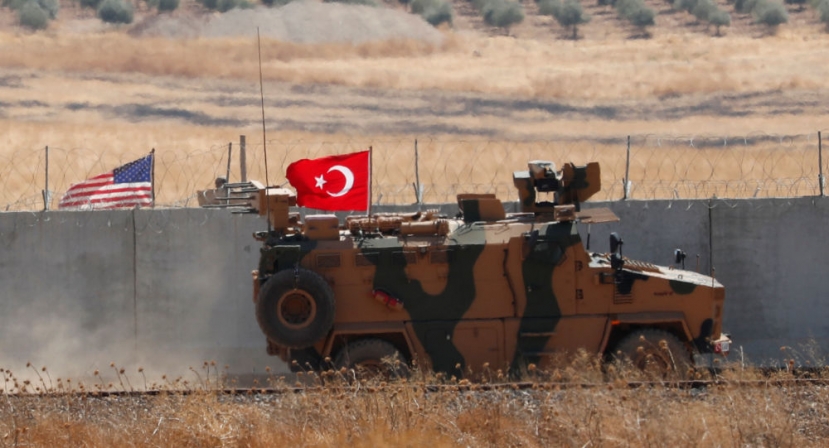Erdogan’s communications director, Fahrettin Altun, said in a column published Tuesday by The Washington Post that Erdogan and US President Trump had agreed to "transfer the leadership of the counter-Daesh campaign" to Ankara, offering that Turkish forces "together with the Free Syrian Army, will cross the Turkish-Syrian border shortly".
Altun gave a choice to Kurdish fighters remaining in the region who are thought to be at risk from Ankara's attack.
"It remains to be seen whether YPG militants will agree to the change in the campaign’s leadership. Indeed, they have two options: If they are genuinely interested in fighting Islamic State* [Daesh], they can defect without delay. Or they can listen to their commanders, who say that they will fight the Turkish forces — in which case we will have no choice but to stop them from disrupting our counter-Islamic State [Daesh] efforts", Altun said, according to The Washington Post.
The Turkish president's communications director did not specify a concrete timeframe for the promised invasion.
Turkey views the Kurdish forces as a threat to national security and has repeatedly threatened to launch an incursion into northern Syria as a means of forcing them out of the area.
In August, Washington and Ankara announced that they had agreed to create a joint operations centre to coordinate and manage the establishment of a safe zone in northeast Syria.
Should a safe zone be created, YPG would have to remove its forces and weaponry from the area.
The Turkish Defence Ministry said in a statement on Tuesday that Ankara had completed preparations for its military incursion. A statement was issued shortly after Turkish airstrikes reportedly destroyed two bridges at the Samalka checkpoint on the border between Syria and Iraq. The Samalka checkpoint is controlled by Arab-Kurdish units of the SDF.
The United States, meanwhile, has started to withdraw its troops from the area. The White House stated it would not "support or be involved in" Turkey's upcoming operation.
The Autonomous Administration of North and East Syria - the de-facto autonomous region - is ready for talks with Damascus as Turkey's operation looms, according to earlier statements by top official Badran Jiakurd.
The Syrian government has repeatedly urged the Kurds to join a dialogue and has slammed their reliance on US forces illegally operating in the country.
A senior SDF commander, Mazloum Kobani Abdi, told NBC on Monday that Kurdish-led forces do not rule out backtracking on their pro-US stance and joining with Syrian President Bashar Assad to fight a Turkish military offensive in the north of the Arab republic.

